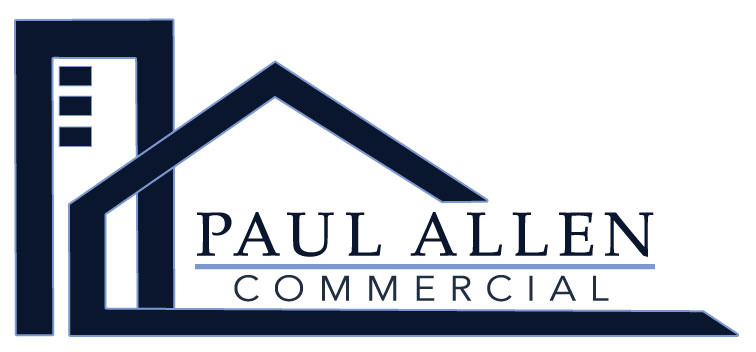Choosing a competent Commercial Contractor in San Antonio is one of the most important decisions to be made in starting a new building. Commercial Contractor selection should be made based on a variety of factors. Firm experience, familiarity with the project type and size, availability of personnel, design and technical capabilities as well as personal compatibility are all factors that should be considered. When searching for a Commercial Contractor contact others who have designed similar facilities and find out who they contacted and why. Find out which real estate group or developer is representing a prospective property and ask them for a contractor reference. You may also want to talk to family, friends or business associates for referrals.
Once you have assembled a list of names contact a few of the contractors that seem most appropriate and find out how they would approach your project. Ask to see previous work, discuss the particulars of your project and ask any additional questions that you may have. Based on this information you can come to a final decision on which firm to work with.
Ideally it is best to get the builder involved in a project as early as possible. The right builder can help evaluate building sites, drainage, topography challenges, help provide information on existing zoning and/or code requirements, give preliminary ideas on construction costs, answer general conceptual project questions, as well as help identify advantages or drawbacks associated with the project you have in mind. The best project in the world are designed and built with all members of the Design Build team from Day 1.
Plan services and Architects may have standard plans or various degrees of custom plans that can be modified for each project. Their services usually begin and end with the design and drafting of constructions plans.
Often, plans are drawn without the budget being factored in. Owners may complete plans with an independent Architect to take to a Commercial Contractor to bid. Once the owner has received multiple over-budget bids, more out of pocket money is spent reducing the size or scope of the project
On the other hand, Design Build Commercial Contractors give customers the best of both worlds. Contractors are in the business of building and can track the target cost of building more closely than anyone else in real time as the plans are being created. This will better ensure the project is more closely aligned with target size, cost, and constructability. Design Build Commercial Contractors will have several Architects relationships that will streamline the process. In addition, the Contractor will have relationships with other professional including Surveyors, Geotechnical Engineering, Civil Engineering, MEP Engineering, and Structural Engineering.
Another advantage to the Design Build process is that there are more eyes on the planning process to help eliminate as many errors in the project planning as possible. Further, the entire Design Build team is responsible for constructability, value engineering, and quality controls by evaluating individual factors and presenting solutions that are unique to the project.
Preliminary Design Build services that some, but not all Design Build contractors specialize in consist of the following:
Site meeting & general project analysis, survey work, platting, zoning, prelim schematic design, design development, construction document preparation, including both drawings and written specifications, soils analysis, engineering including structural, mechanical, electrical and plumbing. Smaller scope projects such as space planning or custom finish out spaces may involve only some of these services.
Additional services that the Design Build Commercial Contractor can provide include accessibility compliance, color and material selection, 3D dramatic renderings and full 4D video walk through. Independent consultants often included as part of the process include Interior designer, Landscape Architecture, Civil engineering, and others.
The more information that you can provide to your Contractor the better. A word of caution related to this is that you should think in terms of standards, quality levels and functionality. Do not try to impose rigid criteria and possibly prevent the design build team from coming up with new ideas that may significantly improve the project. You should be prepared to discuss project criteria including space requirements, special functional and equipment needs, future expansion, and budget.
Items such as a site surveying, soils testing, and environmental studies are appropriate items to provide the Design Build team, if available. In addition, you should be available to review plans, meet on site and make required decisions as needed during the course of the project in.
The Design Build Commercial Contractor will have several independent licensed architects that they work with. Generally speaking, it is best to design the project with the contractors existing relationship in efforts to streamline the project. The construction documents, specifications, selections, and overall scope of the project, is developed in the planning phase.
Costs for Design Build services will depend on the types and level of services provided for a specific project. Most contractors will take a deposit upfront to cover the cost of the architectural plans, soils analysis, and engineering. All deposits are typically deducted from the overall construction costs.
Typically, there are two ways that Commercial Contractors contract; Fixed Fee, and Cost Plus. Fixed Fee contracts more often than not have all construction related costs to include materials and labor all lumped together in one fixed fee cost. There are typically no other unspoken costs outside of the contract in the Fixed Fee method. Any rise or decline in building cost is absorbed by the contractor.
Cost Plus contracting as a comparison shifts more risk on the customer. In a Cost Plus scenario the customer pays for all construction activities including materials and labor and is at the mercy the fluctuating market volatility. The Contractor simply adds a mark up to be determined, anywhere from 15%-20%, to each invoice presented. Simply stated, once the construction costs are covered, the customer pays a flat mark up for the contractors services.
